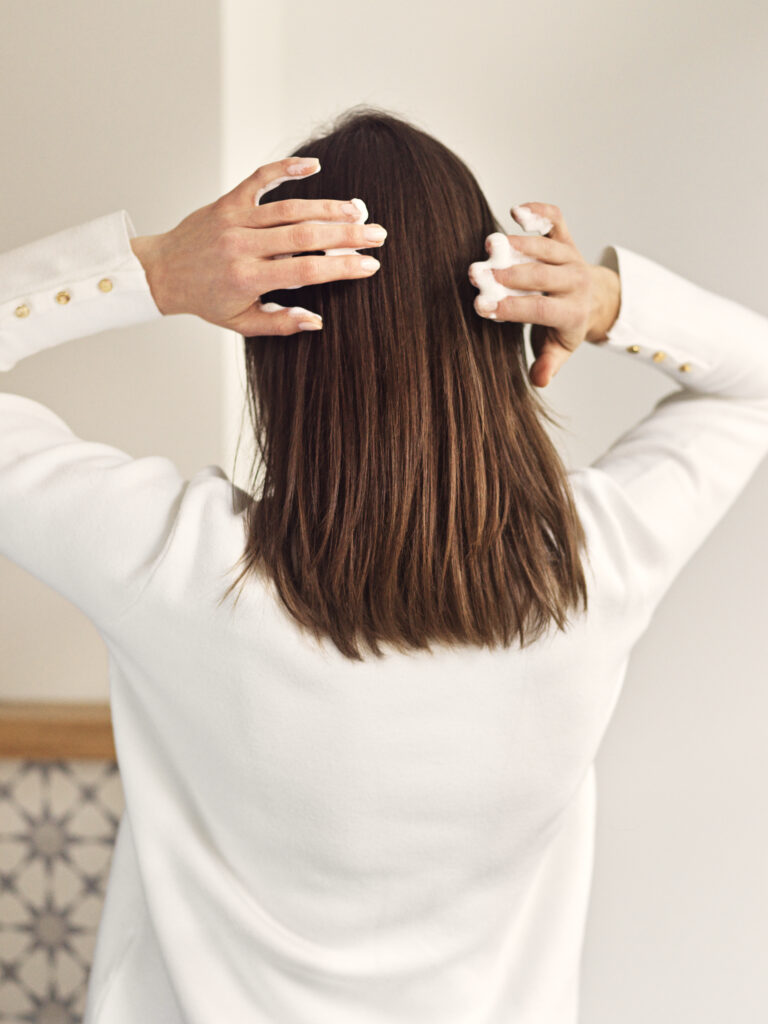The summer heat takes a toll on your skin and hair equally. Just as you apply sunscreen to protect your skin from UV rays and sun-induced stress factors, your hair will also require extra care to protect it from becoming frizzy and brassy in the summer. Like your skin, your hair has melanin-like pigment cells that react to the sun’s ultraviolet rays. Melanin acts like a protector from the sun, absorbing the harmful UVA/UVB rays it emits. But too much exposure to UVA/UVB rays can damage melanin. In your skin, this can result in a sunburn. For your hair, it can cause your hair colour to fade more rapidly. If your hair is naturally dry, it’ll worsen during summer, swelling up and spreading in all directions, making it difficult to achieve a smooth, neat finish. Why? Dehydrated hair absorbs excess atmospheric humidity, causing the shaft to expand and produce cuticle splits.
Although the sun does not cause thinning hair, it can harm your scalp and hair by destroying its structure and depleting protective oils. Additionally, sun exposure causes thinning hair by triggering the production of a superoxide chemical, which causes hair follicles to transition from the growing stage to the shedding cycle.
Signs of Sun-Damaged Hair.
Like the skin on the rest of our body, the skin on the scalp can burn in the sun, leading to a higher risk of skin cancer. There are several ways to tell if the sun has damaged your hair. A quick tell-tale sign is split ends and dryness. You may also notice that your strands are brittle, dry, and break off easily, resulting in thinning. Frizziness and discolouration, especially for recently colour-treated hair, are other confirmatory signs.
What Does Chlorine Do to Your Hair?
Your hair requires some of its natural oil to stay smooth and healthy. However, the metals and chemicals in chlorine pools can disrupt the natural oils in your hair, leaving it damaged, harsh, and dry. Additionally, chlorine may induce chemical reactions within your hair, causing it to lose its natural color, develop split ends, and weaken each strand.
What Does Saltwater Do to Your Hair?
Saltwater can dehydrate your hair and scalp, leaving them dry, brittle, and frizzy. This is because saltwater draws out moisture from your hair and scalp. Saltwater can also cause damage to the hair cuticle, which is the outermost layer of your hair. This damage can lead to split ends, breakage, and frizz.

How does UV/HEAT HAIR mousse Protect Hair in Summer from Damage?
- It has UVB and UVA filters for extra protection. How? By forming a protective barrier on the surface of your hair that helps shield it from the sun’s damaging ultraviolet (UV) rays. Hair sunscreen protects your cuticle (the external area of the hair strand) by creating a buffer between it and the sun’s rays. Keep in mind: Hair sunscreen doesn’t work to prevent cell damage as regular SPF products do.
- A complex of natural oils repairs dryness, damage, and brittleness, contributing to hair moisture and softness without leaving a heavy, greasy residue. It facilitates hair growth while preventing the premature development of grey hair. It is very conditioning and smoothing, without leaving the hair feeling stringy, and minimises coarseness, especially after rinsing it out after a swim, which will be beneficial.
- The Vitamin B-complex family helps strengthen and nourish hair follicles to promote healthy hair growth and prevent hair loss.
- Extracts that work as a colour protector. It prevents the photo-degradation of hair, which lightens and fades natural and cosmetic colours.
